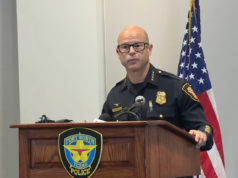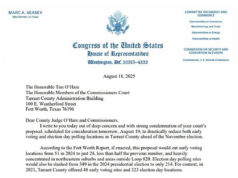It’s like one of those heartwarming scenes from a disaster: Firemen saving a baby from the burning building. Volunteers pulling survivors from the tornado’s wreckage. Or, in this case, a state senator getting a good bill through the 82nd Texas Legislature, where even toddlers and old people aren’t safe.
The senator in question is Wendy Davis of Fort Worth — a Democrat, no less. This week, her bill to keep law enforcement agencies from allowing rape kits to languish untested passed the House and is headed to the desk of Gov. Rick Perry.
 It’s been a cruel joke in many Texas cities for years that, even after rape victims found the courage to come forward and submitted to the hours-long exams necessary to gather DNA evidence against their attackers, in tens of thousands of cases the kits were never sent to crime labs for analysis. A spokesman for Davis’ office said Fort Worth police got a grant several years ago that enabled the department to whittle down its backlog — and in the process cleared a number of cases, including several committed by serial rapists.
It’s been a cruel joke in many Texas cities for years that, even after rape victims found the courage to come forward and submitted to the hours-long exams necessary to gather DNA evidence against their attackers, in tens of thousands of cases the kits were never sent to crime labs for analysis. A spokesman for Davis’ office said Fort Worth police got a grant several years ago that enabled the department to whittle down its backlog — and in the process cleared a number of cases, including several committed by serial rapists.
The legislation requires law enforcement agencies to submit rape evidence to accredited crime labs within 30 days. The key question, as the Texas Tribune and others have reported, is whether the law enforcement agencies and labs will have the funding to get the kits analyzed.
The bill provides “a huge benefit in terms of solving cases in addition to the peace of mind it give to women who go through that traumatic procedure,” said Anthony Spangler, communications director for Davis.
Torie Camp, deputy director of the Texas Association Against Sexual Assault, called the bill “a fantastic step forward for sexual assault victims.” But she acknowledged that finding the money to carry out the bill’s intent will take time, especially given the financial crises affecting almost all levels of government.
“My organization will continue to work on it,” she said. “We will search for resources,” including looking for grants that could enable agencies to clear their backlogs. The first question to get answered, she said, is how large the backlog is. “Right now the state of Texas can’t tell you” the number of untested rape kits sitting in evidence lockers, she said, but it’s at least 22,000.











